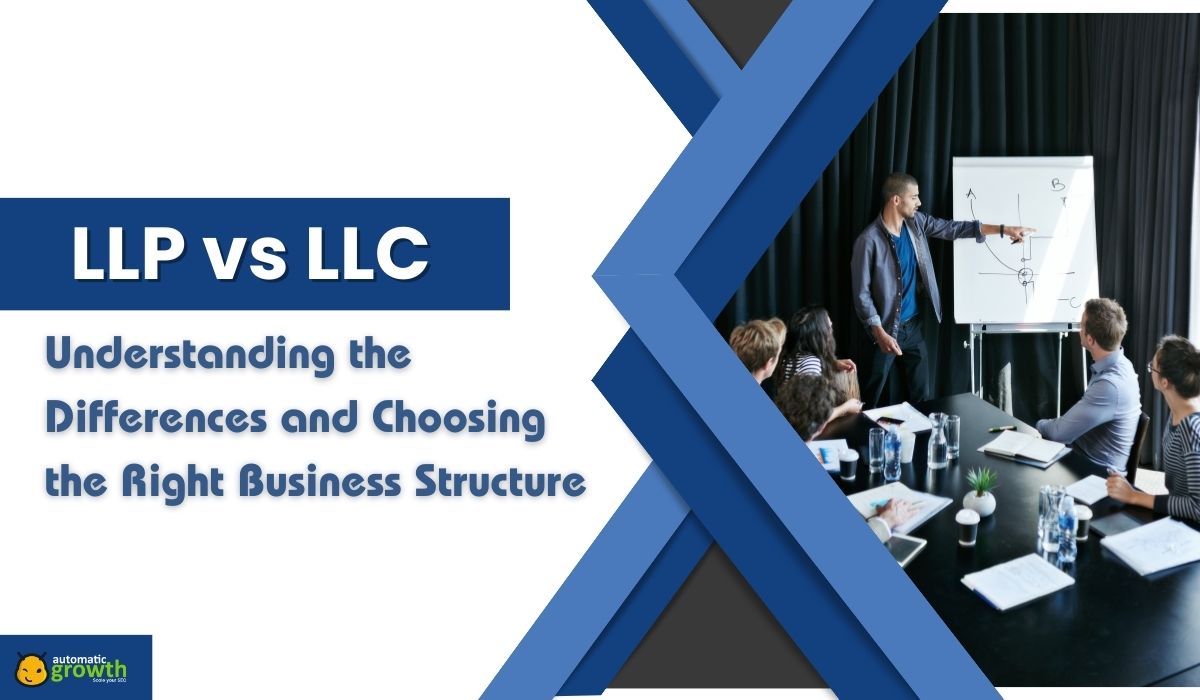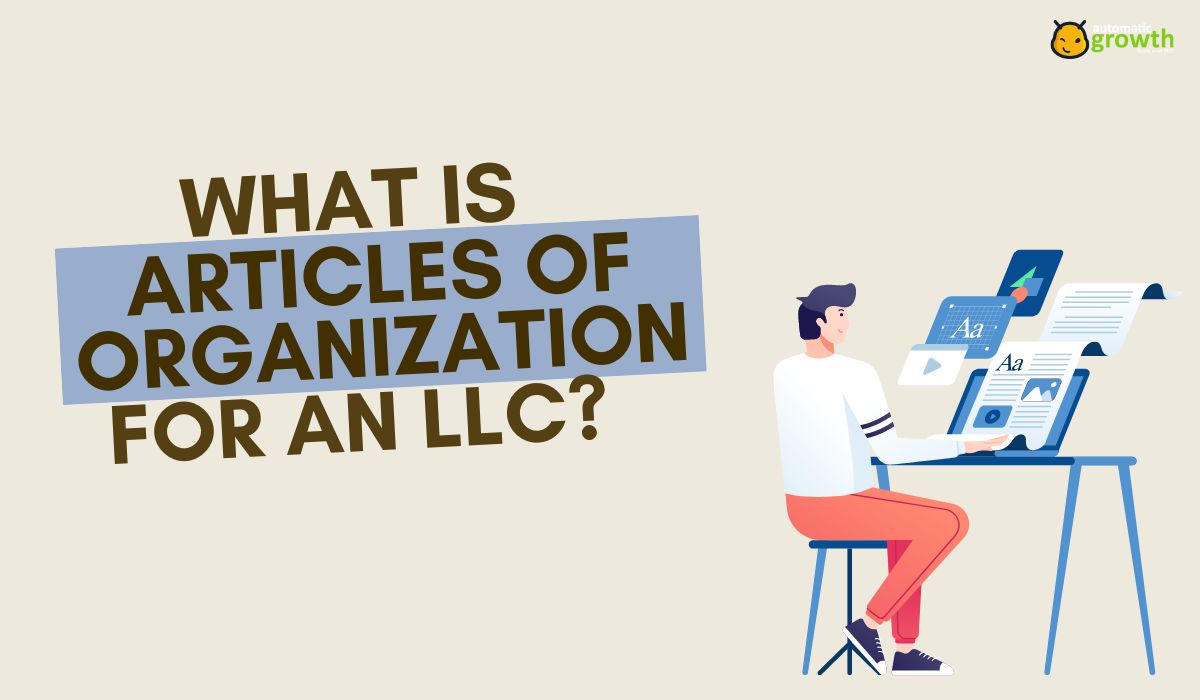Choosing the right business structure is a critical decision for any entrepreneur or small business owner. Two popular options are Limited Liability Partnerships (LLPs) and Limited Liability Companies (LLCs). Each has its unique features, benefits, and limitations that can significantly impact the operation and success of your business. Let's delve into the differences between LLP vs. LLC.
Limited Liability Partnership (LLP)
Fast Facts
A partnership structure providing limited liability protection to its partners, often used by professional service firms.
A Limited Liability Partnership (LLP) is a type of business structure that combines the benefits of a partnership and limited liability. It provides partners with personal liability protection, similar to a corporation, while maintaining the flexibility and tax advantages of a partnership.
In an LLP, partners have the freedom to manage the business according to their agreement without the strict formalities required by corporations. This allows for greater operational flexibility and decision-making power among partners.
Limited Liability Company (LLC)
A Limited Liability Company (LLC) is a popular business entity that combines the limited liability protection of a corporation with the flexibility and simplicity of a partnership. It is a legal structure that provides personal liability protection to its owners, who are called members.
Unlike sole proprietorships or partnerships, where the owners have unlimited liability, members of LLCs enjoy limited liability protection.[1] Their personal assets are shielded from any debts or legal obligations incurred by the business. If the LLC faces financial difficulties or lawsuits, the personal assets of its members cannot be seized to satisfy those obligations.
Key Differences Between LLP vs LLC
| Aspect | Limited Liability Partnership (LLP) | Limited Liability Company (LLC) |
| Definition | A partnership where partners have limited liabilities, and it is not required to have a general partner with unlimited liability. | A business structure that combines the pass-through taxation of a partnership or sole proprietorship with the limited liability of a corporation. |
| Liability | Partners have limited personal liability for business debts, similar to shareholders in a corporation. | Members (owners) are protected from personal liability for company debts and obligations. |
| Taxation | Profits are passed through to the personal tax returns of the partners, avoiding corporate income tax. | Can choose between pass-through taxation or corporate taxation. Profits and losses can be passed through to members' personal income without facing corporate taxes. |
| Ownership and Management | Partners manage the business directly, and ownership is tied to the proportion of investment or partnership agreement. | Managed by members (owner-managed) or managers (manager-managed). Ownership can be through one or multiple individuals/entities. |
| Flexibility in Structure | Offers more flexibility in terms of management and investment structure; ideal for professional groups like lawyers, and accountants. | Flexible but may have more restrictions compared to an LLP, especially in terms of raising capital and transfer of ownership. |
| Penalties and Compliance | Typically, it requires fewer formalities than an LLC, but this can vary by state. | Requires more formalities like filing articles of organization, creating an operating agreement, and annual reporting in most states. |
LLP Vs. LLC: Breaking Down the Differences
1. Personal Liability Protection
In an LLP, partners have limited liability for the actions and debts of the partnership. If the partnership faces legal action or financial obligations, the personal assets of individual partners are generally protected. However, partners can still be held personally liable for their own negligence or misconduct.
On the other hand, in an LLC, members also enjoy limited liability for company debts and legal matters. The key difference here is that members of an LLC typically have broader protection against personal liability compared to partners in an LLP.
2. Management Structures
In an LLP, there are two types of partners: general partners and limited partners. General partners have more control over the day-to-day operations of the partnership and bear unlimited personal liability for their debts and obligations. Limited partners, on the other hand, contribute capital but have less involvement in management decisions and face limited personal liability.
Conversely, an LLC has a more flexible management structure. Members can choose to manage the company themselves or appoint managers to handle its operations. This allows members to separate ownership from day-to-day decision-making authority if they wish to do so. Unlike general partners in an LLP who may face unlimited personal liability, all members of an LLC enjoy limited liability regardless of their level of involvement in managing the business.
3. Legal Requirements for Formation
To form an LLP, certain legal requirements must be met. These requirements vary by jurisdiction but often include:
-
Filing a certificate of formation
-
Paying the required fees or business license
-
Outlining the partnership's structure and management in a written agreement
In contrast, forming an LLC typically involves the following process:
-
Filing articles of organization with the state
-
Paying the necessary fees
-
Fulfilling ongoing compliance requirements
The operating agreement, which outlines how the company will be managed and operated, is not always required but is highly recommended.
Advantages and Disadvantages of LLP vs LLC
| Advantages | Disadvantages | |
| Limited Liability Partnership | Partners are not personally liable for business debts or other partners' actions.Freedom to manage business directly.Income taxed on individual partners' tax returns.Beneficial for professional services like law and accounting. | Not recognized or restricted to certain professions in some states.Potential for unequal liability among partners.Less attractive to investors due to lack of stock options. |
| Limited Liability Company | Members not personally liable for business debts.Choice between pass-through and corporate taxation.Can include various entities as members.Can be member-managed or manager-managed. | Requires filing articles of organization and annual reports.Regulations and requirements differ by state.Members may face self-employment tax on profits. |
LLC or LLP: Which Is Best For You?
Fast Facts
LLP is best suited for professional service firms, with more emphasis on the partnership aspect, while LLC is suitable for a wide range of businesses, offering more flexibility in management and operation.
Choosing between an LLC and an LLP depends on several factors specific to your business needs and goals. Here's a brief guide to help you decide which might be best for you:
-
Nature of Your Business: If you're a professional service provider (like a lawyer or accountant), an LLP might be more suitable. For a broader range of businesses, an LLC offers more flexibility.
-
Liability Concerns: If personal liability protection is a major concern, an LLC generally offers broader protections.
-
Tax Implications: Consider how you want your business to be taxed. LLCs offer more options in this regard.
-
State Laws: Both LLCs and LLPs are subject to state laws, which can vary significantly. Check the regulations in your state to understand the implications for each structure.
Ultimately, the best choice depends on your specific business circumstances, including your industry, management preferences, liability concerns, and taxation considerations. It's often beneficial to consult with a legal or financial advisor to make the most informed decision for your particular situation.
After choosing the right business structure, consider the benefits of becoming a certified minority-owned business. This certification can open doors to new opportunities, including access to government contracts, networking events, and potential business partnerships. If you're a minority business owner, explore the strategic next step in your business journey!
















